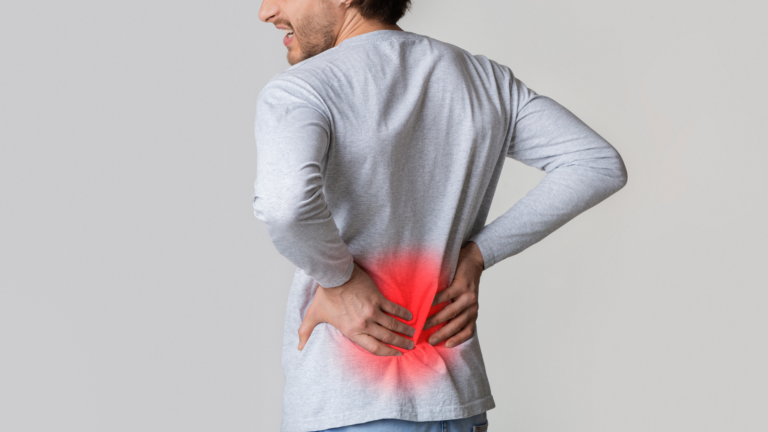When it comes to exploring the optimal dosing of medicinal cannabis, it’s essential to consider various factors that play a significant role in determining the right amount for your individual needs. Understanding the intricacies of dosing can make a substantial difference in the effectiveness and overall experience of using cannabis for medicinal purposes.
By delving into the recommended dosages, factors that influence dosing, and tailoring dosage based on specific conditions, you can navigate the world of medicinal cannabis with informed decision-making.
Table of Contents
Dosage Considerations for Medicinal Cannabis
When determining the appropriate dosage for medicinal cannabis, considering factors such as the patient’s medical condition, tolerance level, and desired therapeutic effects is crucial. Each individual responds differently to cannabis based on these factors, making personalized dosing recommendations essential.
The patient’s medical condition plays a significant role in determining the dosage, as certain conditions may require higher or more frequent doses to achieve therapeutic effects. Additionally, tolerance level must be taken into account to prevent adverse effects or underwhelming results. Patients with higher tolerance may need increased doses to experience the same benefits.
Understanding the desired therapeutic effects is also vital in dosage considerations. Whether the goal is pain relief, improved sleep, or reduced anxiety, tailoring the dosage to align with these objectives can enhance the overall treatment efficacy. By carefully evaluating these factors, healthcare providers can develop precise and effective dosage recommendations for patients seeking medicinal cannabis therapy.
Related Article: Top 7 Cannabis Strains for Anxiety Relief
Factors Influencing Cannabis Dosage
To determine the appropriate dosage of cannabis for medicinal use, various factors such as the patient’s medical history, existing medications, and potential drug interactions need to be carefully evaluated. Your medical history plays a crucial role in determining how cannabis may affect you. Conditions like liver or kidney disease can impact how your body processes cannabis, potentially requiring adjustments to the dosage.
Additionally, existing medications can interact with cannabis, either enhancing or diminishing its effects. Certain medications, such as blood thinners or opioids, may interact with cannabis, necessitating a dosage modification to prevent adverse reactions.
Moreover, factors like age, weight, and metabolism can influence how your body responds to cannabis. Older individuals may be more sensitive to cannabis, requiring lower doses for the same effect as a younger person. Body weight can also play a role, with heavier individuals sometimes needing higher doses to experience the same benefits. Understanding these factors is essential in determining the most effective and safe cannabis dosage for your medicinal needs.
Recommended Dosing for Medical Cannabis
When considering recommended dosing for medical cannabis, it’s crucial to understand proper dosing techniques. Finding the optimal dosage for your condition and being open to adjusting dosages for effectiveness are key factors. By following these points, you can work towards achieving the best therapeutic outcomes while minimizing potential side effects.
Remember that individual responses to medical cannabis can vary, so it’s essential to work closely with your healthcare provider to tailor the dosage to your specific needs.
Proper Dosing Techniques
Exploring proper dosing techniques for medicinal cannabis is essential for optimizing therapeutic benefits while minimizing potential risks. When starting with medical cannabis, it’s crucial to begin with a low dose and gradually increase it until the desired effects are achieved.
Dosage can vary based on factors such as the individual’s medical condition, age, weight, metabolism, and tolerance levels. It’s recommended to start with a ratio of low THC to CBD, especially for beginners, to minimize psychoactive effects.
Keeping a dosing journal can help track the effects of different doses, allowing for adjustments as needed. Consulting with a healthcare provider experienced in medical cannabis can provide personalized guidance on finding the most effective dosage for your specific needs.
Finding Optimal Dosage
Optimizing the therapeutic benefits of medicinal cannabis involves determining the ideal dosage tailored to individual needs and conditions. When finding the optimal dosage for medical cannabis, consider the following:
- Start Low: Begin with a low dose and gradually increase until the desired effects are achieved. This helps minimize potential side effects.
- Consult a Healthcare Provider: Seek guidance from a healthcare provider experienced in medicinal cannabis to ensure safe and effective dosing.
- Keep a Journal: Track your dosage, the strain used, and the effects experienced. This information can help refine your dosage for better results.
Adjusting for Effectiveness
To ensure the effectiveness of medicinal cannabis, it’s crucial to adjust the dosage carefully based on individual response and symptom relief. Start with a low dose and gradually increase it until the desired effects are achieved while monitoring for any side effects.
It’s recommended to keep a journal to track the effects of different doses on your symptoms. Remember that factors like metabolism, weight, and tolerance can influence how cannabis affects you.
Consulting with a healthcare provider or a medical cannabis specialist can provide valuable guidance in adjusting your dosage for optimal effectiveness. By being attentive to your body’s response and making gradual adjustments, you can find the right dosage that works best for your medical condition.
Understanding THC and CBD Ratios
Understanding the ratios between THC and CBD is essential for grasping the potential effects of medicinal cannabis on the body. These ratios can vary widely in different cannabis strains and products, impacting the overall experience and therapeutic benefits.
Here are three key points to consider when understanding THC and CBD ratios:
- Balance is Key: The ratio of THC to CBD in a product can significantly influence its effects. A balanced ratio, such as 1:1, may offer a more well-rounded experience with potential benefits from both cannabinoids.
- THC Dominant: Products with higher THC ratios, such as 10:1 THC to CBD, are more likely to induce psychoactive effects. These products may be suitable for individuals seeking relief from pain, nausea, or appetite loss.
- CBD Dominant: On the other hand, higher CBD ratios, like 20:1 CBD to THC, are often associated with non-intoxicating effects. These products may be preferred for managing conditions like anxiety, inflammation, and seizures.
Tailoring Dosage for Specific Conditions
When determining the appropriate dosage of medicinal cannabis for specific conditions, consider consulting with a healthcare professional to ensure personalized and effective treatment. Tailoring the dosage of medicinal cannabis to specific conditions is crucial for achieving optimal therapeutic benefits. Different conditions may require varying doses of cannabis to effectively manage symptoms while minimizing potential side effects.
For chronic pain management, starting with a low dose of THC and gradually increasing until pain relief is achieved is a common approach. Conditions like epilepsy may benefit from higher doses of CBD, as studies have shown its potential in reducing seizure frequency. Anxiety disorders, on the other hand, might respond better to balanced THC and CBD ratios.
In conditions where inflammation plays a significant role, higher doses of CBD with some THC may be beneficial due to their anti-inflammatory properties. For insomnia, a higher THC content could help promote relaxation and aid in sleep. Remember, the optimal dosage can vary based on individual responses, so close monitoring and adjustments may be necessary for effective treatment.
Monitoring and Adjusting Cannabis Dosage
Monitoring and adjusting cannabis dosage is essential for optimizing therapeutic outcomes and minimizing potential side effects in medicinal cannabis treatment. To ensure you’re getting the most benefit from your medicinal cannabis regimen, follow these important steps:
- Start Low and Go Slow: Begin with a low dose and gradually increase it until you find the optimal dosage that provides you with the desired effects. This approach helps to minimize the risk of experiencing adverse reactions.
- Keep a Dosage Journal: Maintain a detailed record of the doses you’re taking, along with any effects or side effects you experience. This journal can help you track patterns, identify what works best for you, and make informed adjustments to your dosage.
- Consult with Your Healthcare Provider: Regularly communicate with your healthcare provider about your cannabis treatment. They can provide guidance on adjusting your dosage based on your condition, symptoms, and overall health status. Open communication is key to ensuring safe and effective cannabis use for medicinal purposes.
Consultation With Healthcare Professionals
To optimize your medicinal cannabis treatment and ensure its safety and efficacy, engaging in consultations with healthcare professionals is essential for guiding your dosage adjustments and overall therapeutic management. Healthcare professionals, such as doctors specializing in medical cannabis or pharmacists with expertise in this area, can provide valuable insights based on scientific evidence and clinical experience. During these consultations, healthcare professionals can assess your medical history, current health status, and medication regimen to tailor a dosage plan that suits your individual needs.
Furthermore, consulting with healthcare professionals allows for a comprehensive evaluation of potential drug interactions, side effects, and contraindications that may arise when using medicinal cannabis. They can offer guidance on how to titrate your dosage effectively, monitor your progress, and make necessary adjustments to optimize treatment outcomes while minimizing risks.
Frequently Asked Questions
Can Medicinal Cannabis Be Used in Conjunction With Other Medications?
Yes, medicinal cannabis can be used in conjunction with other medications, but it’s crucial to consult with your healthcare provider. Interactions can occur, affecting drug levels and side effects. Your doctor can provide personalized guidance.
Are There Any Potential Side Effects or Interactions to Be Aware of When Using Medicinal Cannabis?
When using medicinal cannabis, be mindful of potential side effects like dizziness or dry mouth. Interactions with certain medications can occur, so always consult with a healthcare provider. Stay informed to ensure safe usage.
How Long Does It Typically Take to Feel the Effects of Medicinal Cannabis After Ingestion?
After ingestion, effects of medicinal cannabis typically begin within 30 minutes to 2 hours. Factors like dosage, method of consumption, and individual metabolism influence onset time. Monitoring your response is key to understanding how it affects you.
Are There Different Dosing Recommendations for Different Methods of Consuming Medicinal Cannabis (E.G. Smoking, Edibles, Topicals)?
When consuming medicinal cannabis, remember that dosing recommendations can vary depending on the method of consumption. Factors like smoking, edibles, or topicals have different absorption rates, so it’s essential to follow specific guidelines for each.
How Do I Know if I Have Reached the Optimal Dosage for My Condition When Using Medicinal Cannabis?
To determine the optimal dosage of medicinal cannabis for your condition, it’s crucial to start low and slow, gradually increasing until you find relief with minimal side effects. Monitor your symptoms closely for guidance.
Conclusion
In conclusion, determining the right dosage of medicinal cannabis is crucial for achieving optimal therapeutic benefits. Factors such as individual tolerance, medical condition, and desired effects all play a role in finding the right dose.
It’s important to consult with healthcare professionals to guide you in determining the appropriate dosage and to monitor and adjust as needed.
By understanding the science behind THC and CBD ratios and tailoring dosages to specific conditions, patients can experience the full potential of medical cannabis.




